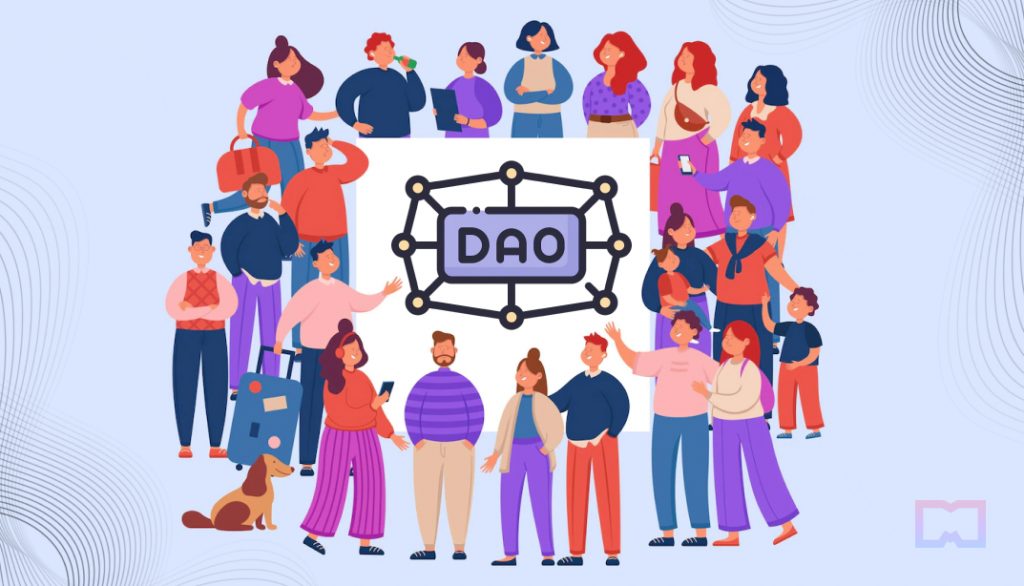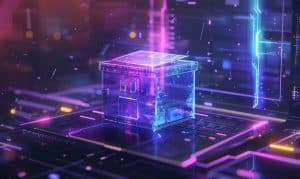DAOs are focused more on the community than profit. Here’s why (2023)

In Brief
This purpose may be to create a new product or service, fund a project, or decentralize power within an organization.
The governance structure will determine how decisions are made within the DAO.
DAOs are growing in popularity as an alternative way to organize communities in Web 3.0. Communal ownership is the core principle of why DAOs are formed.

DAOs (decentralized autonomous organizations) are powered by code. While they can be formed for a variety of reasons, the core principle is always communal ownership. They are created to serve a specific purpose or goal. This purpose may be to create a new product or service, fund a project, or decentralize power within an organization. DAOs are managed by the community that creates them, and they are funded by the members of the community. However, their goal is not to make a profit; instead but to serve the needs of the community.
DAOs have the potential to serve as excellent governing tools for communities
1. DAOs are decentralized
A DAO is decentralized, which means there is no central authority figure making decisions for the organization. Instead, it is governed by its members according to the rules laid out in its code. This decentralization gives DAOs a great deal of flexibility and makes them more adaptable than traditional organizations.
2. DAOs are autonomous
DAOs are organizations that run without human intervention, relying solely on code. Therefore, they can continue to operate even if their members leave or are unable to participate. The DAO’s code will continue to run and govern the DAO according to the rules that have been set up. This autonomy makes DAOs more resilient than traditional organizations.
3. DAOs are organized around a common goal
DAOs are often organized around a common goal, so they are more likely to be focused on achieving their goal than making a profit. For example, a DAO might be formed to develop a new technology or to promote a cause.
4. DAOs are not profit-driven
DAOs often have incentives that are not tied to profit. This means that DAOs are more likely to focus on achieving their goals than on making a profit. For example, a DAO might offer rewards for members who contribute towards fulfilling its goal.
5. DAOs are transparent
DAOs provide their members with a great deal of transparency. For example, DAOs often publish their code publicly so that everyone has access to it. This transparency allows DAO members to hold the DAO accountable for its actions. Blockchain technology to securely store information and transactions.
DAOs offer a new way of organizing communities in Web 3.0. They are focused more on the community than on profit, which makes them ideal for a variety of purposes. DAOs are transparent, efficient, and adaptable, which makes them well-suited to the needs of today’s fast-paced world.
Can DAOs be trusted?
Some people are discussing whether decentralized autonomous organizations are the next big step forward in our way toward decentralization. However, despite their potential to solve real problems, DAO proponents don’t really understand these issues and thus created something that may do more harm than good.
There is a big DAO divide. One group says that DAOs are the way of the future because they can help solve many of the world’s problems, while others say that DAOs are nothing more than a pipe dream and that they are not viable because they cannot be trusted.
The truth is that DAOs are as trustworthy as their code is. This means they can be trusted if they are created and managed correctly. DAOs have the potential to help solve many of the world’s problems, but only if they are used in the right way. DAOs that are not created and managed correctly can be dangerous because they can be used to harm people or create chaos.
Can DAOs be for profit?
DAO platforms allow businesses and organizations to enjoy a proficuous and collective experience without central management. As we can see, a DAO isn’t bound by traditional company structures or rules and regulations. This means that businesses don’t need to worry about complicated legal frameworks or other forms of bureaucracy in order to run their venture profitably.
Moreover, since DAO governance models are decentralized, decisions can be made quickly and efficiently. Decisions are made by the members of the DAO rather than a single individual, allowing for more efficient decision-making and faster responses to market changes.
The establishment of a DAO
DAOs should only be undertaken with a clear understanding of the risks and rewards. However, it is a new way of organizing communities, and they come with both benefits and risks. Before creating a DAO, it is important to understand these risks and rewards so that you can make an informed decision about whether or not a DAO is right for you.
Outline the organization of the DAO Project
If you are planning to create a new DAO, your first concern should be determining its core structure. Before seeking someone to write Ethereum codes or utilize DAO tools, you should first establish the organization of your DAO. This will give you a clear idea of what your DAO will look like and how it will operate.
There are three main aspects to consider when establishing the organization of your DAO
The community served by the DAO is the most important aspect to consider since meeting the needs of its community is the key to a successful DAO. To determine the needs of the community, you must first understand who the members of the community are and what they want.
Then, figure out DAO’s purpose as it will determine its goals and objectives. To establish the purpose of the DAO, you must first understand the needs of the community and then determine how the DAO can help meet those needs.
Finally, consider the governance structure of the DAO. The governance structure will determine how decisions are made within the DAO.
You need to decide on the following three things regarding your DAO tokens:
- Supply – The supply of DAO tokens should be limited so that they can be used as a currency. If the supply of DAO tokens is not limited, then they will be worthless.
- Distribution – The distribution of DAO tokens should be fair so that everyone has an equal opportunity to participate in the DAO. If the distribution of DAO tokens is not fair, then some people will have more power than others, which could even potentially lead to corruption.
- Use – The use of DAO tokens should be aligned with the purpose of the DAO. If the use of DAO tokens is not aligned with the purpose of the DAO, then they will be worthless.
Related articles:
- 6 Free AI Prompt Builders, Helpers and Tools That Artists Actually Use in 2022
- Top 50 Text-to-Image Prompts for AI Art Generators Midjourney and DALL-E
- Midjourney and Dall-E Artist Styles Dump with Examples: 130 Famous AI Painting Techniques
- 50 Best NFT Marketplaces for Creators: Ultimate List 2022
Disclaimer
In line with the Trust Project guidelines, please note that the information provided on this page is not intended to be and should not be interpreted as legal, tax, investment, financial, or any other form of advice. It is important to only invest what you can afford to lose and to seek independent financial advice if you have any doubts. For further information, we suggest referring to the terms and conditions as well as the help and support pages provided by the issuer or advertiser. MetaversePost is committed to accurate, unbiased reporting, but market conditions are subject to change without notice.
About The Author
Ken Gitonga is passionate about writing. His work involves writing crypto articles on SEO, TAs, News writing, Web3 articles, crypto price prediction, and white paper drafting. Ken is a content writer and marketer. He has worked in the SEO and content marketing industries for over 3 years and has helped businesses grow their online presence and traffic.
More articles

Ken Gitonga is passionate about writing. His work involves writing crypto articles on SEO, TAs, News writing, Web3 articles, crypto price prediction, and white paper drafting. Ken is a content writer and marketer. He has worked in the SEO and content marketing industries for over 3 years and has helped businesses grow their online presence and traffic.






















































